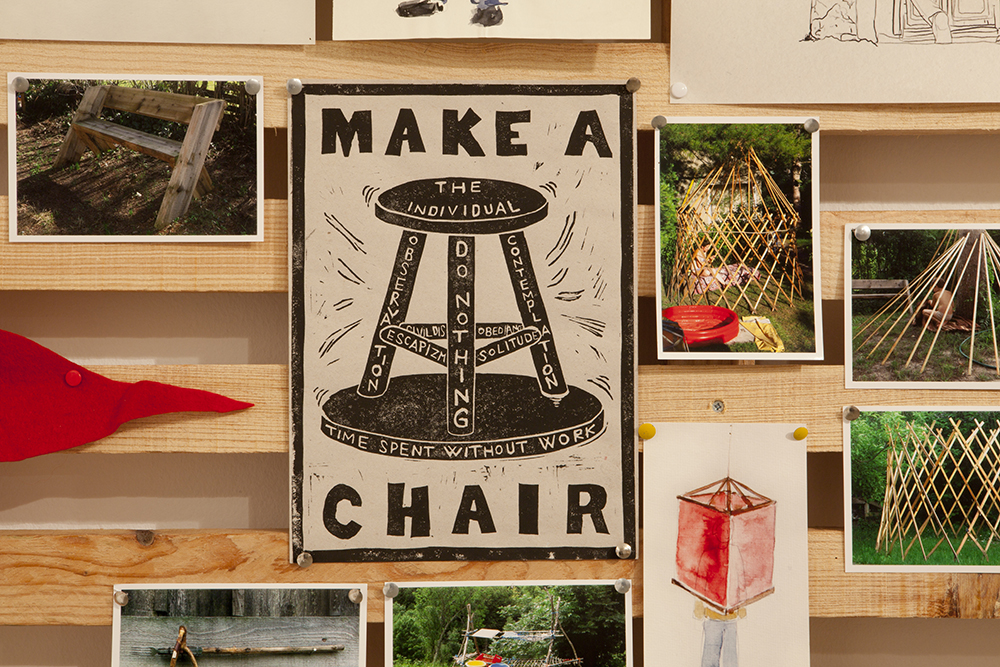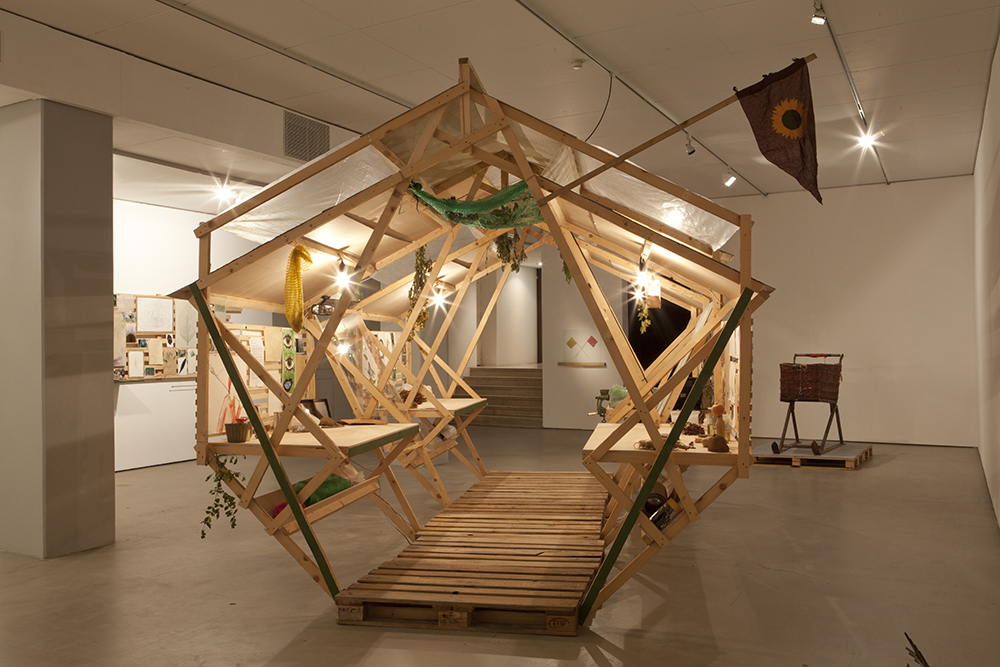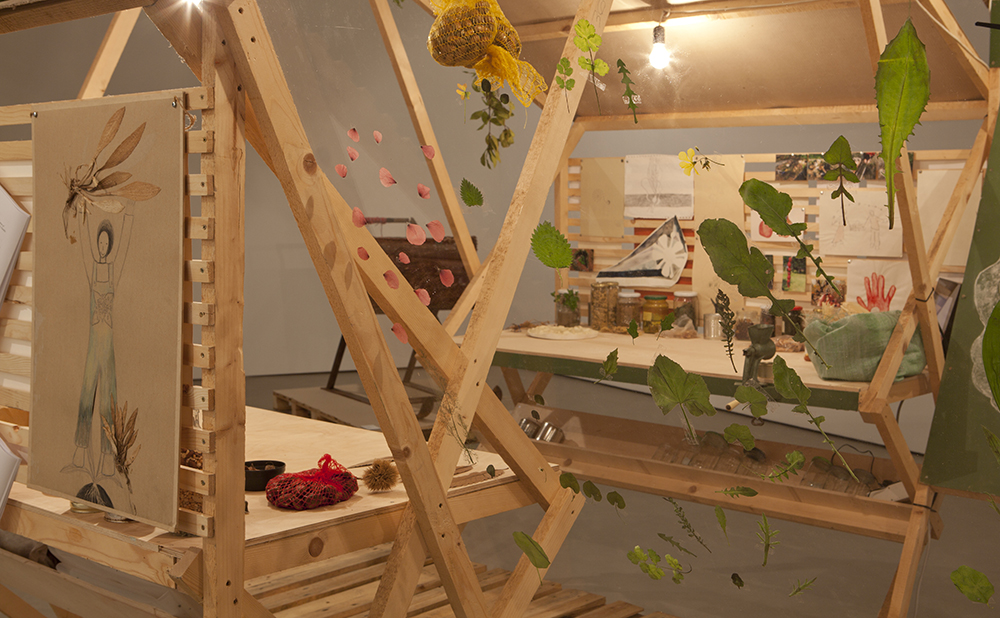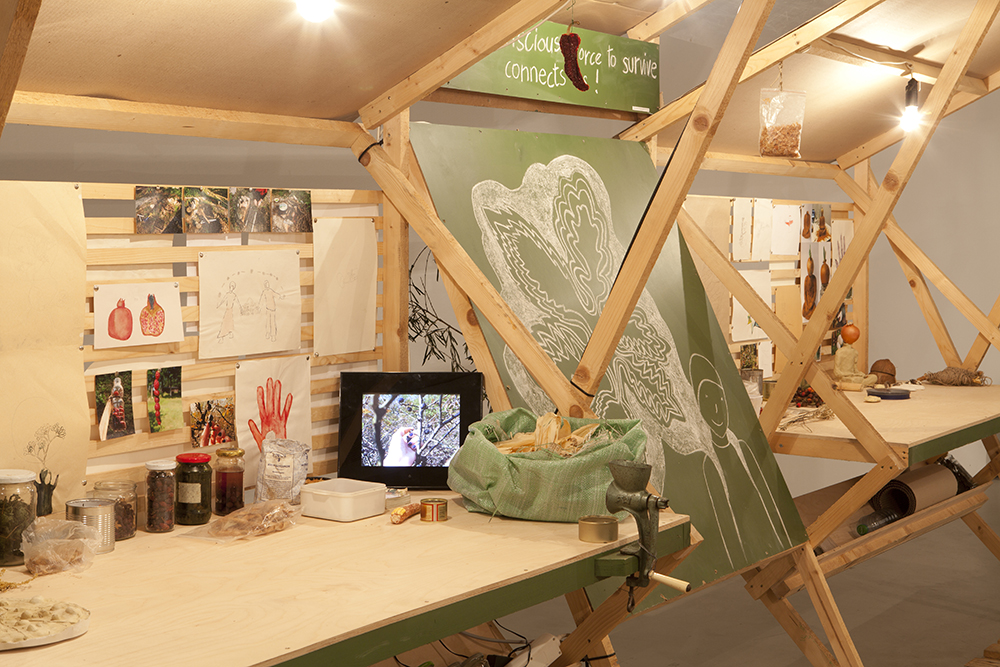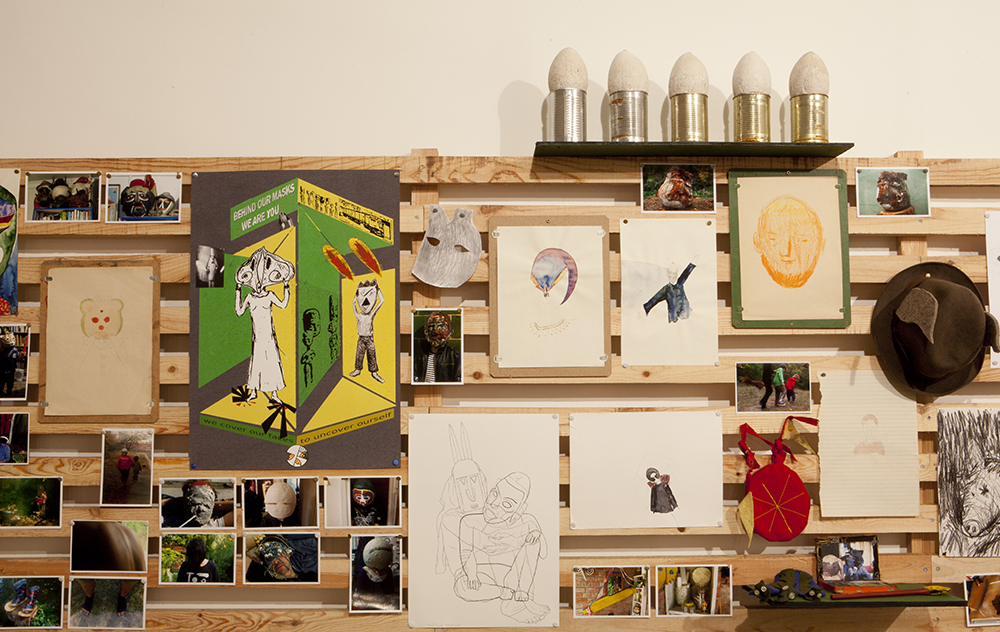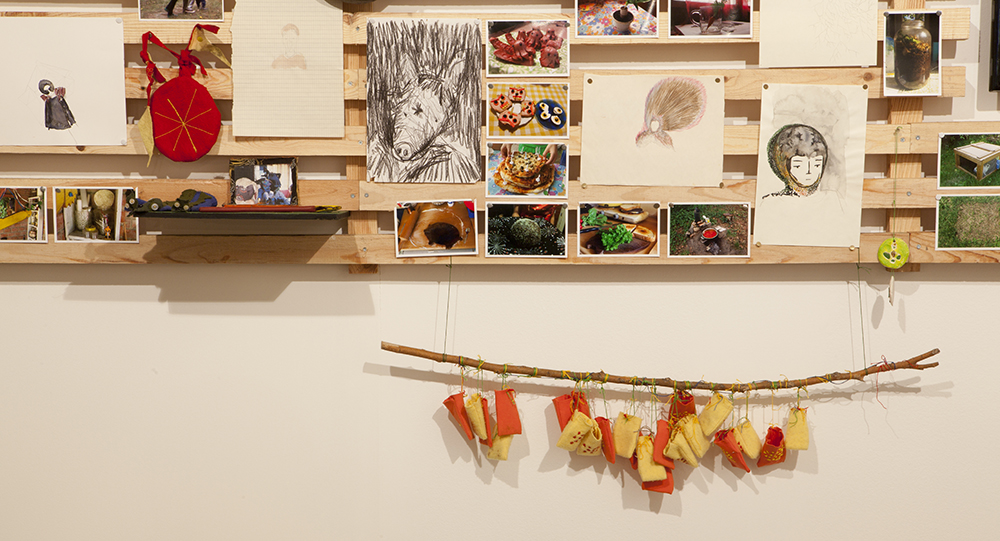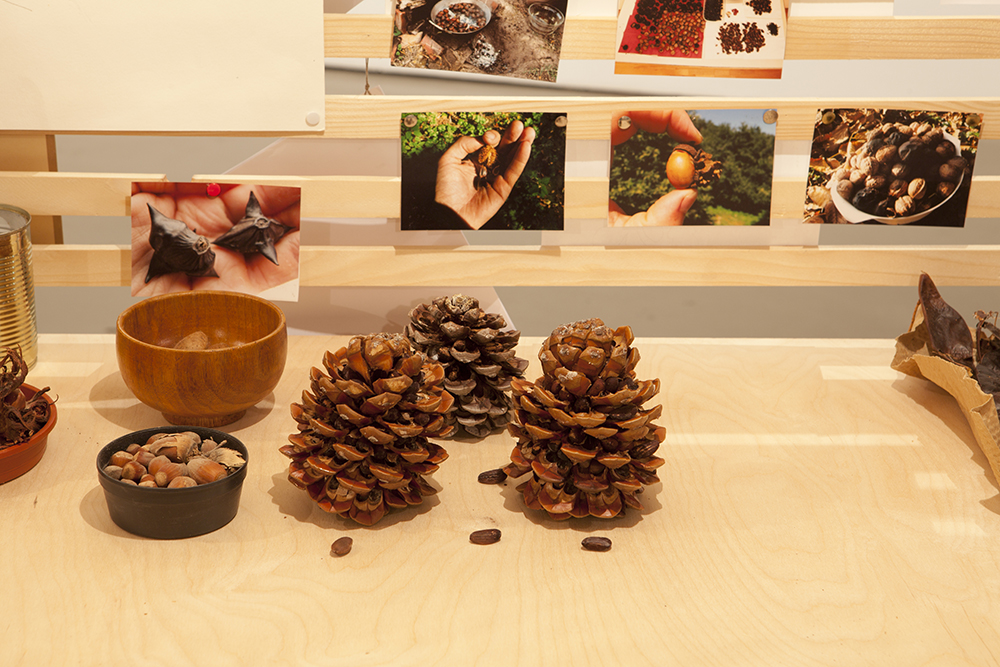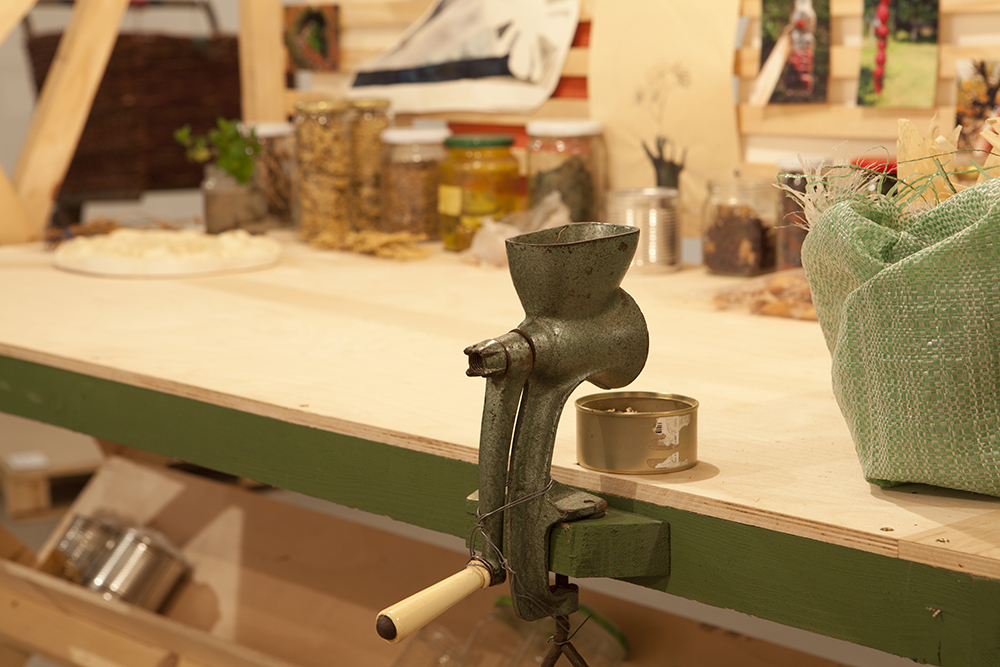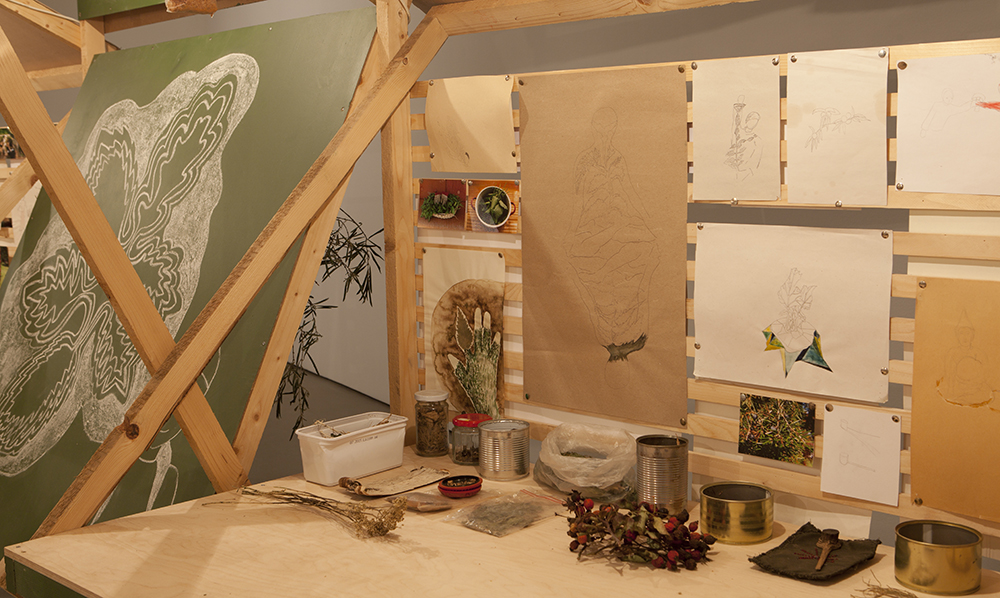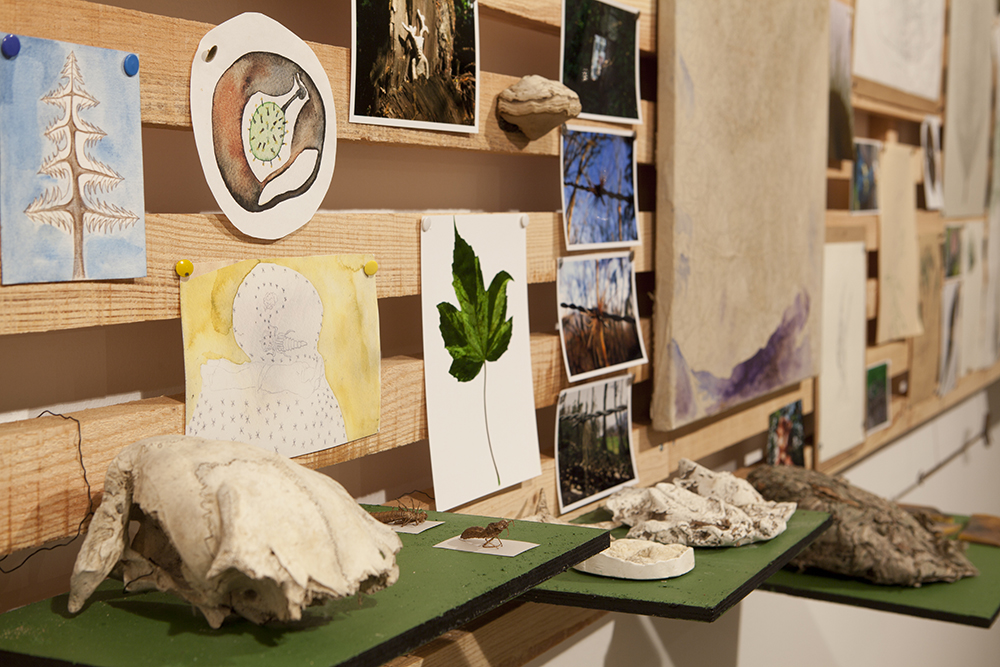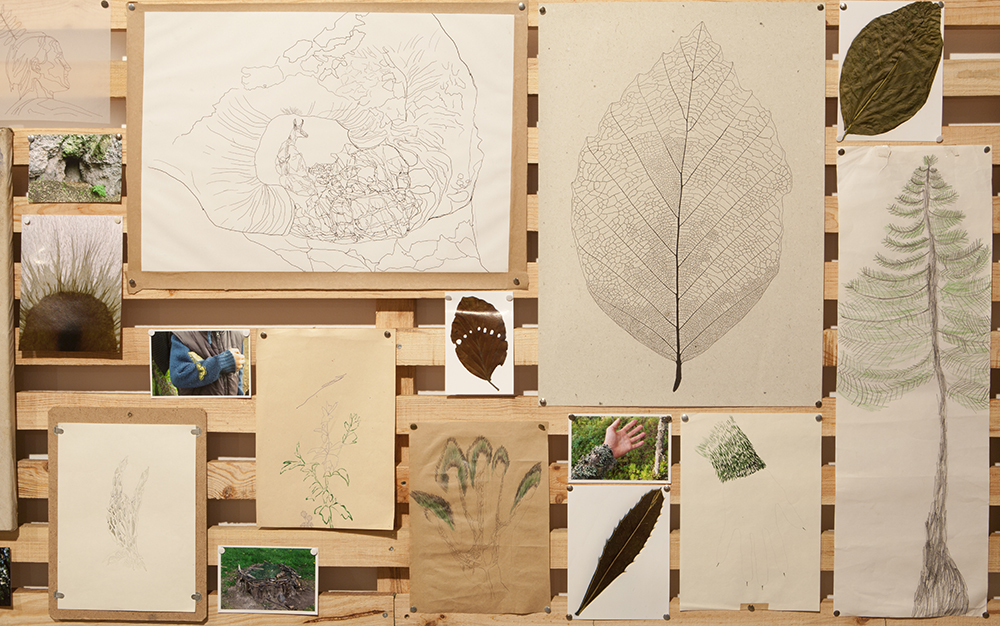Tamás Kaszás
Event Slider
Date
- Mon, Wed, Thu, Fri, Sat and Sun,
Location
Modern Collection – Multipurpose Room R. Dr. Nicolau Bettencourt, LisbonProject Space presents Joy of Surviving, a project by Tamás Kaszás (1976, Dunaújváros, Hungary) and the artist’s first solo exhibition in Portugal.
The exhibition brings together a group of works that, departing from an imminent scenario of ecological and economic collapse, gives rise to the creation of a fiction of an alternative future, built on the values of imagination, collaboration, self-sufficiency, and the recovery and reinterpretation of an ancestral popular science.
The artistic practice of Tamás Kaszás is marked by the construction of large scale installations that the artist calls Visual Aid, where drawing, photography, video, text and small objects are brought together. The artist uses techniques and materials that are simple, accessible, recycled or inexpensive that echo the formal language of the European avant-garde of the 1920s and activist movements of the 20th century.
His work summons up the concepts of ecological sustainability, auto-anthropology, escapism, history and utopia. For Tamás Kaszás, art (or its use) is first and foremost ‘an instrument for living’ (or surviving), an emancipatory instrument for a ‘simple and happy life’, a position that implies a critique of global capitalism, consumerism and the loss of autonomy of the contemporary subject.
Tamás Kaszás’s career is also marked by several collaborations with other artists, including a prolific collaboration with Anikó Loránt, with whom he formed the Ex-Artists’ Collective in 2003. It is within the framework of this collaboration that he develops the projects Auto-Anthropology (2010-2017) and Famine Food (2011-2017), which are central to the exhibition. Joy of Surviving also features a collaboration with the artist Sophie Dodelin in the context of the project Disco Batata (Discoteca Tuberosum) [Disco Potato – Discoteca Tuberosum] (Caparica, 2008-2017).
Curator: Rita Fabiana
Tamás Kaszás
Tamás Kaszás (1976, Dunaújváros, Hungary) lives and works on the island of Szentendrei, near Budapest. He studied in the Intermedia Department and in the PhD program of the Academy of Fine Arts in Budapest. The artistic practice of Tamás Kaszás is marked by the construction of large scale installations that the artist calls Visual Aids, where drawing, photography, video, text and small objects are brought together. The artist uses techniques and materials that are simple, accessible, recycled or inexpensive that echo the formal language of the European avant-garde of the 1920s and activist movements of the 20th century. His work summons up the concepts of ecological sustainability (‘green thinking’), self-anthropology, popular science, escapism, history and utopia. For Tamás Kaszás, art (or its use) is first and foremost ‘an instrument for living’ (or surviving), an emancipatory instrument for a ‘simple and happy life’, a position that implies a critique of global capitalism, consumerism and the loss of autonomy of the contemporary subject. Tamás Kaszás’s career is also marked by several collaborations with other artists, including a prolific collaboration with Anikó Loránt, with whom he formed the Ex-Artists’ Collective in 2003. It is within the framework of this collaboration that he develops the projects Auto-Anthropology (2010-2017) and Famine Food (2011-2017), which are central to the exhibition. Joy of Surviving also features a collaboration with the artist Sophie Dodelin in the context of the project Disco Batata (Discoteca Tuberosum) [Disco Potato (Discoteca Tuberosum)] (Costa de Caparica, 2008-2017). Since 2003, Kaszás has also developed the Randomroutines project with the artist Krisztián Kristóf. Tamás Kaszás participated in the 19th Sydney Biennale (2014) and in the 12th Istanbul Biennale (2011), having exhibited at various institutions such as the Open Space in Vienna (Austria), smak in Ghent (Belgium), the Ludwig Museum in Budapest (Hungary) and in the Storm Project in Utrecht (Netherlands), among others. Tamás Kaszás is represented in several public collections such as the Ludwig Museum Budapest, the mudam Luxembourg, the Museum Sztuki Lodz and the Tate Modern in London. .
Additional activities
In Portuguese only
Guided tour
Edible, nutritious and medicinal plants in the Gulbenkian Garden
Saturday, 13 May, 3:30 p.m.
Round table
Expect Resistance – Resilience, Autonomy and Imagination
Speakers: António Alvarenga, Maria José Varandas, Adriana Freire and Graça Ribeiro
Saturday, 13 May, 5:00 p.m.
See event
For groups by previous booking only
Booking:
(+351) 217 823 800
[email protected]
More information:
[email protected]
